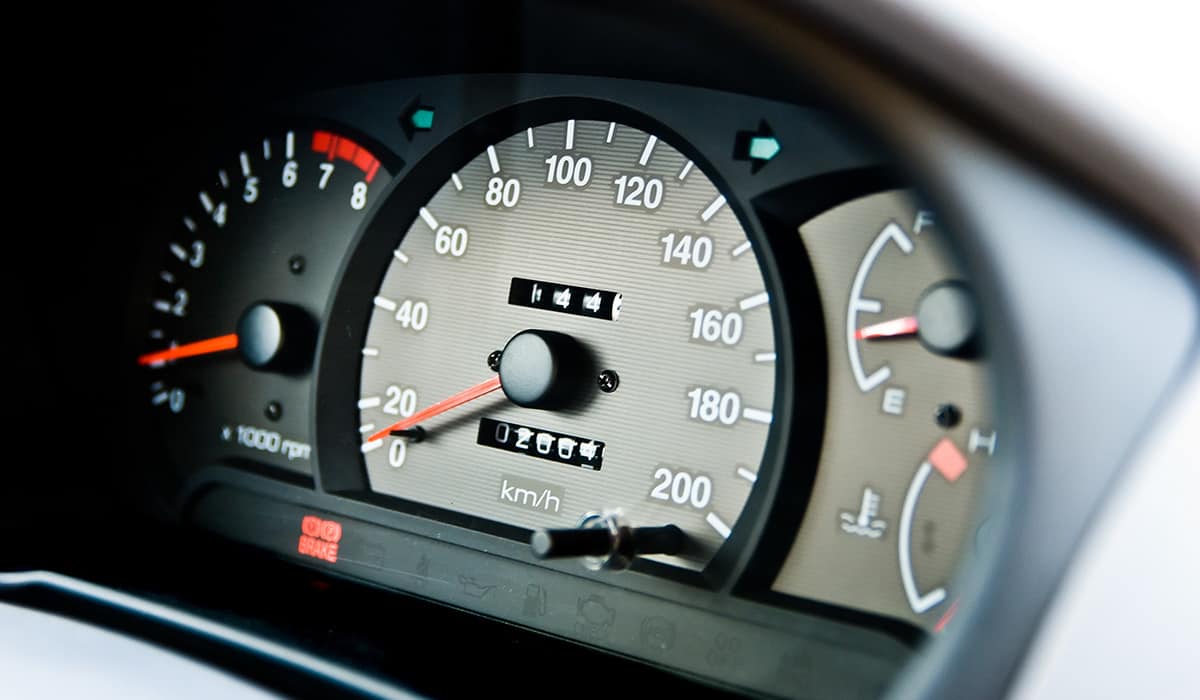What is an Odometer Statement and Why is it Important?
The significant impact of mileage on a car’s value is reflected in the fact that vehicles with higher mileage tend to be much cheaper than those with low mileage. To ensure transparency, the law has implemented odometer disclosure statements. So, what is an odometer statement, and why is it important?
An odometer statement is a document that records the mileage of a vehicle over its lifespan. This legal document paints an accurate picture of a vehicle’s past, helps prevent fraud, and aids in determining the value of a vehicle.
Let’s get into the details and find out what odometer fraud is. We’ll also learn how to obtain an odometer disclosure statement and cap things off by discussing if it’s legal to replace an odometer.
What is the Purpose of an Odometer Statement?

An odometer statement states the accurate mileage on a vehicle’s odometer when sold, transferred, or leased. This legal document is required in many states as it serves as proof that the vehicle has been properly maintained and accurately valued.
This document is also necessary for any future repairs or maintenance and can act as evidence in the event of a dispute. Without an odometer statement, it would be difficult to tell the condition of a vehicle and know how much wear and tear it has gone through.
You must fill out the odometer statement correctly and accurately to be valid.
What is Odometer Fraud?
Odometer fraud is the disconnection, resetting, and alteration of a vehicle’s odometer to make it appear as if it has less mileage than it does to increase its resale value.
A high-mileage vehicle will sell for less compared to a similar vehicle with fewer miles. This tempts some sellers to alter a vehicle’s odometer to lie about the number of miles on it.
An odometer keeps track of miles as you drive your car. You’ve probably noticed a long six-digit number below your speedometer. Older cars tend to have analog odometers, while modern cars generally use digital ones. If your car has an analog odometer, it is possible to break it open and roll back the numbers. As for a digital odometer, you can manipulate the car’s computer.
Fortunately, odometer disclosure statements and federal laws such as the Federal Truth in Mileage Act (introduced in 1986) have been put in place to combat odometer fraud. Because of this law, every vehicle’s mileage is stored in a database and updated every time the vehicle is sold.
If you’re considering buying a used car, ask for the certificate of title and compare its recorded mileage with what the car’s odometer says. Pay extra attention to the title if the mileage appears to be tampered with or is difficult to read.
You can also inspect the vehicle for visible signs of wear and tear. The vehicle’s age, as well as the wear on the brake, gas, and clutch pedals, should all match the number of miles the odometer displays.
Moreover, websites like Bumper allow you to verify the mileage on a vehicle you plan to purchase by obtaining the vehicle history report and inspection records.
If you suspect odometer fraud, you should get in touch with the National Highway Traffic Safety Administration (NHTSA) right away. Your state may also have an organization, such as the DMV, responsible for detecting and preventing odometer fraud. You can reach out to this agency if you have any questions or would like to provide information.
How Do You Obtain an Odometer Disclosure Statement?

Every state requires that vehicle owners have odometer disclosure statements. You can obtain it from the vehicle’s seller and sign it to acknowledge the odometer reading. You may also get the document from your state Department of Motor Vehicles (DMV) website. Some states use a federal form for the odometer disclosure statement, while others have unique versions.
The standard information on a completed odometer disclosure statement form includes the following:
- The buyer’s name and contact information
- The seller’s name and contact information
- The date of odometer certification
- The vehicle’s make, year, and model number
- The vehicle Identification Number (VIN)
- The precise mileage of the vehicle at the time of odometer certification
Is It Legal to Replace an Odometer?
Replacing an odometer is illegal. According to the Federal statute 49 US Code § 32703:
- The law forbids someone from disconnecting, resetting, or altering a motor vehicle’s odometer with the intention of changing the mileage registered by the odometer.
- The law forbids someone from operating a motor vehicle on a street, road, or highway with intent to defraud if they are aware that the vehicle’s odometer isn’t working or has been disconnected.
Odometer fraud is a pretty serious offense. If the law finds that you have committed the crime, you may be required to pay either a $1,500 fine or three times the amount of damages (whichever is greater), in addition to the cost of legal fees.
